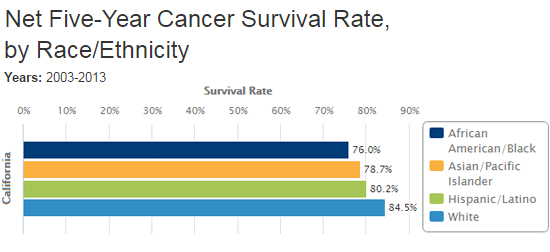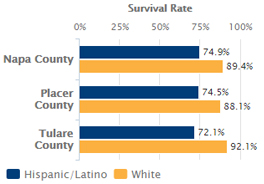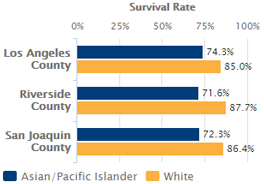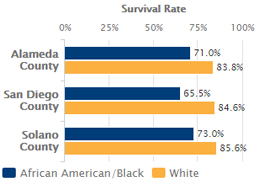|

In California, gaps persist in net five-year survival rates among children and youth ages 0-19 diagnosed with cancer between 2003 and 2013. The survival rate among white children is 85 percent, compared to 80 percent for Hispanic/Latino children, 79 percent for Asian/Pacific Islander youth, and 76 percent for African American/black children.
Data at the county level are limited, however variation in gaps across counties is wide. A few counties, such as Sacramento and Contra Costa, show less than a five percentage point gap in cancer survival rates across racial/ethnic groups, but most counties show wider gaps.
The figures below show a selection of counties with data that had a gap wider than 10 percentage points for three racial/ethnic groups in California.
Learn more »
|





